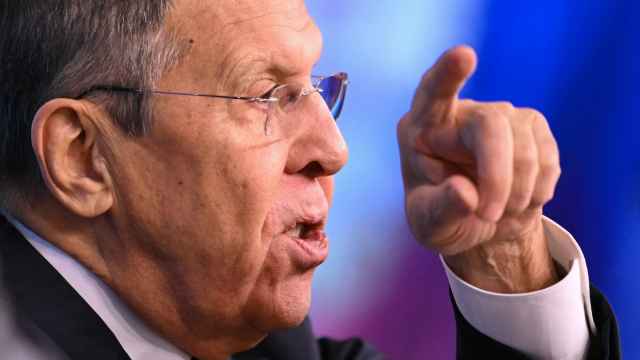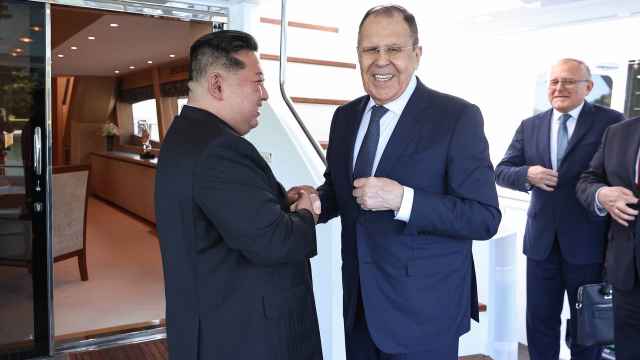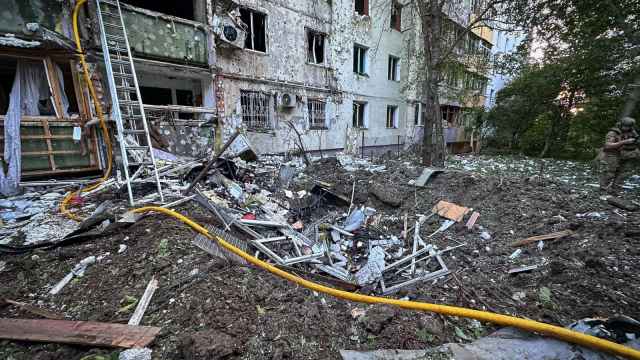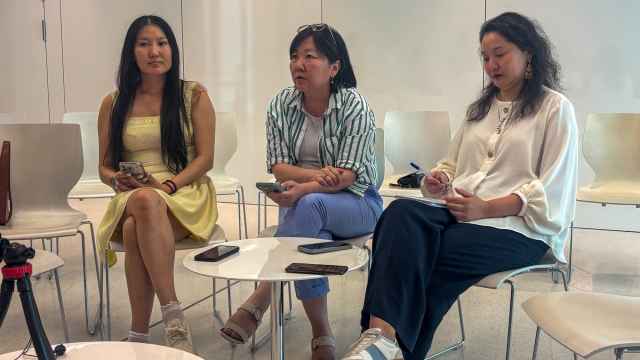Sberbank president German Gref told a real estate forum last week, with Mayor Sergei Sobyanin in attendance, that "brand" Moscow is incapable of making the country's capital attractive for business.
"Now, the brand 'Moscow' is negative in Russia and the world. What is it associated with? Dirty ecology, huge traffic jams and a very unfriendly environment," Gref said. "That environment creates the face of the people, and how they interact with one another."
One of the key factors — which is simultaneously a question of infrastructure and branding — is the airports and the roads that connect them to the city, Gref said.
"Some foreigners told me that, having arrived at Sheremetyevo and gone through passport control, they immediately bought a return ticket. They no longer had the desire to enter the country," he said.
Gref wished Sobyanin good luck in solving the capital's problems, but warned that it will not be easy.
"Sobyanin is not a wizard. He's just learning. We have only one wizard in this country," Gref said, making an obvious allusion to President Dmitry Medvedev's recent characterization of Vladimir Churov, head of the Central Elections Commission.
Expanding Moscow's borders is the only way to save the city from collapse, Gref said. The head of the country's largest lender said he thinks that it is practically impossible to lead a normal life in modern Moscow.
"I have the feeling that all this time I'm on a business trip. All the time I want to return from 'comfortable' Moscow to St. Petersburg, and even better to Peterhof [where Gref worked in the 1990s]," he said.
The mayor responded to Gref's complaint by jokingly proposing to rename the city St. Petersburg, but added "that won't change much." Sobyanin said the city's development plans, in terms of improving the metro and road network, push the limits not only of Moscow's financial abilities, but also of the whole country's construction potential.
According to Gref's calculations, he expects to spend about one year out of the next 10 sitting in traffic jams, at a rate of two hours per day — and that's an optimistic forecast, he said.
Medvedev announced the unification of the city with part of the Moscow region in June. The new borders were agreed by August. Last week, deputies of the City Duma approved the agreement on the new borders made between the city and the Moscow region.
The city will expand by incorporating land located to the southwest. The city will take in 21 municipalities, including two city okrugs and 19 city-type and rural settlements now located in the Podolsky, Leninsky and Naro-Fominsky districts of the Moscow region, as well as three areas in the western Moscow suburbs, including parts of the Kransnogorsk and Oditsovo districts. The city will hand part of the territory of the Kurkino district over to the region. The city of Moscow will increase 150 percent, adding 148,000 hectares.
A Message from The Moscow Times:
Dear readers,
We are facing unprecedented challenges. Russia's Prosecutor General's Office has designated The Moscow Times as an "undesirable" organization, criminalizing our work and putting our staff at risk of prosecution. This follows our earlier unjust labeling as a "foreign agent."
These actions are direct attempts to silence independent journalism in Russia. The authorities claim our work "discredits the decisions of the Russian leadership." We see things differently: we strive to provide accurate, unbiased reporting on Russia.
We, the journalists of The Moscow Times, refuse to be silenced. But to continue our work, we need your help.
Your support, no matter how small, makes a world of difference. If you can, please support us monthly starting from just $2. It's quick to set up, and every contribution makes a significant impact.
By supporting The Moscow Times, you're defending open, independent journalism in the face of repression. Thank you for standing with us.
Remind me later.





